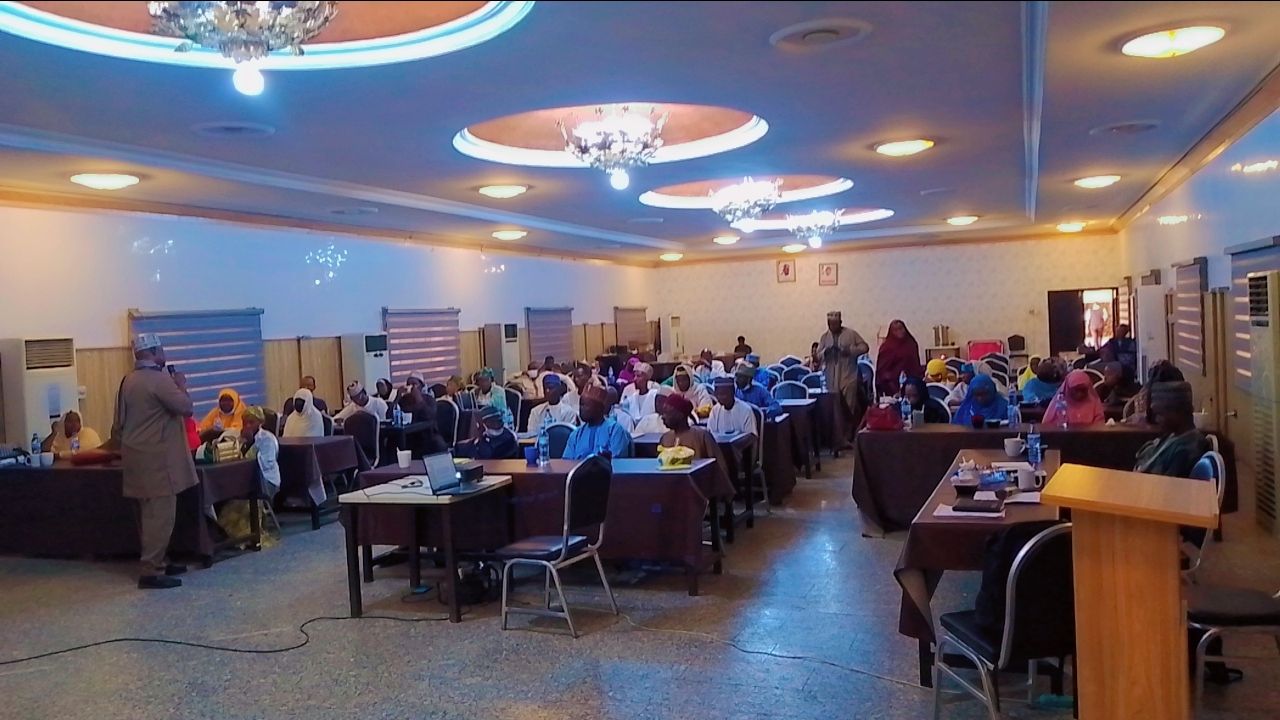Ayeeshat J Ahmad

Pathfinder organizes Training for Ward Development Committees to Enhance Women’s Health Advocacy in the state.
As part of the “Strengthening Multi-level Partnerships for Advancing Women’s Health” project, Pathfinder has conducted a training program for Ward Development Committees (WDCs) to bridge the gap in communication and advocacy skills. The training aims to support advocacy efforts at the sub-national level, prioritizing women’s health to reduce maternal morbidity and mortality.
The 4-Day training focused on building skills of WDCs on communication and advocacy, to enable them engage local leaders on women’s health issues and drive positive health outcomes in their communities.with the first 50 Participants from Kumbotso, Fagge, and Nassarawa LGAs (first batch) and the second batch comprising WDCs from Dala, Gwale and remainder of Kumbotso.
Mr Hassan Ibrahim Gama the facilitator in the training explain the significant move, by pathfinder international, emphasizing the crucial role of Ward Development Committees (WDCs) in ensuring the success of government initiatives. To achieve this, Pathfinder has taken them to train WDCs, enabling them to understand their responsibilities within the community .
However ,Mr Gama said The training program highlights the importance of collaboration between the pathfinder international and WDCs. By working together, they can ensure accountability and effective monitoring of government activities. This partnership is expected to address pressing issues, such as the lack of ownership in government facilities and the theft of drugs and commodities .
Hajiya Nafisa Murtala Ahmad facilitator ,explain the objective of the training as to equip WDCs with the necessary skills to advocate for improved health outcomes in their communities.
“The training will improve communication skills for effective advocacy, enabling WDCs to deliver key messages to diverse groups, including people living with disabilities, pregnant women, and men,” she explained.
Hajiya Nafisa emphasized that WDCs were established by law to perform special functions, and therefore, should carry out their duties without fear or exaggeration.
The training is expected to empower WDCs to effectively advocate for improved maternal and child health outcomes in their communities, ultimately contributing to the reduction of maternal and child mortality in Kano State.
Ado Jibrin Sanda, WDC focal person in SPHCMB, expressed optimism about the training’s impact. He believes it will empower WDCs to tackle the challenges facing government facilities, including theft and vandalism .
In his remarks Shehu Lawan Makoda emphasized the need for hospital guards to prevent theft and damage to medical equipment. He urged the government to provide security personnel to hospitals, particularly in rural areas .
This development demonstrates the Pathfinder international commitment to enhancing community development, accountability, and transparency. By strengthening the partnership between the arms of WDCs, to create a more effective and responsible system
By empowering WDCs with effective communication and advocacy skills, Pathfinder aims to create a ripple effect that promotes women’s health and well-being at the grassroots level.

